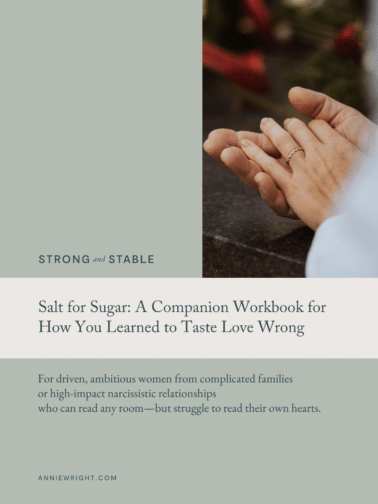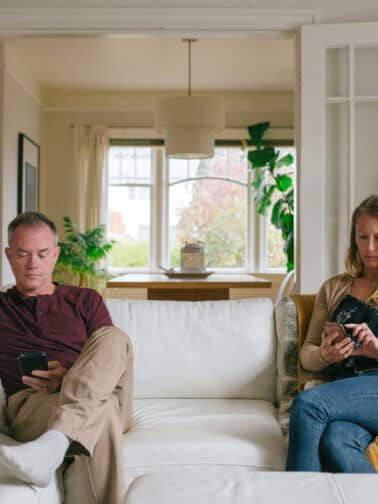TL;DR –A significant health scare at 39 revealed how far I'd come in developing the fundamental self-care skill of attending to medical health—something that would have been impossible for my 29-year-old self who still believed she wasn't worthy of care. Those from relational trauma backgrounds often struggle with basic medical care because it wasn't modeled by caregivers, financial scarcity made healthcare inaccessible, trauma reinforced beliefs of being "broken" and unworthy, and negative medical experiences compounded childhood wounds through dismissal, gaslighting, or bias. True self-care isn't bubble baths and mani-pedis but the unglamorous foundation work—annual physicals, dental cleanings, following up on symptoms, refilling prescriptions, advocating fiercely when dismissed by providers who don't take your concerns seriously.
Attending to medical health means treating yourself as a devoted, protective parent would have—scheduling check-ups despite body shame, demanding concerns be documented when dismissed, seeking second opinions, rearranging finances to prioritize healthcare coverage. Without health, nothing else matters: not the career you're building, the relationship you're seeking, or the child you're raising. While achievements are possible with varying health levels, taking care of your medical needs (whatever your starting point) makes your dreams more achievable. If anxiety surfaces about being assertive with doctors or shame prevents you from making appointments despite concerning symptoms, that's trauma talking—you matter too much to let childhood wounds prevent you from receiving the medical care you deserve.
This past summer I had a significant health scare.
It was totally unexpected. I was, at that point, in the best shape of my life. (Thanks to some lifestyle changes and daily Peloton riding.)
I was feeling as fit and vibrant and energetic as I ever had.
But still, a significant medical surprise happened to me that truly came out of left field.
This medical surprise required many, many doctor appointments. Multiple opinions. A major surgery. And weeks off from work to recover.
I’m happy to say that I’m fine now.
But, even with it all thankfully behind me now, the whole experience reinforced for me the absolute criticality of attending to my health as a fundamental self-care skill as I work to be the best inner parent possible to myself and model good self-care for my daughter as she grows and watches me.
Honestly, I was grateful for the work I’d done personally in my own recovery from my relational trauma history to have honed this skill and to, at this point in time, be so good at taking care of myself with speed, diligence, and relentless self-advocacy.
If this was 10 or 15 years ago, I may not have responded as quickly (or at all) to this scare. And then who knows what consequences that would have had.
The whole experience (and my reflections on how I responded as a relentlessly self-loving 39-year-old versus what my 29-year-old self would have done) reminded me that this skill — attending to your health — is often a fundamental self-care skill that so many folks who come from relational trauma recovery backgrounds may struggle with and that this skill can and must be learned, re-learned, and developed in our relational trauma recovery journeys.
And so today’s essay speaks to this. The criticality of attending to your health as a fundamental self-care skill. Why this is often so hard for folks who come from relational trauma recovery backgrounds. And what it might mean and look like to develop and improve this skill.
If any part of you relates to the challenge of attending to your basic, fundamental health and medical care and you’d like to improve this skill, please join me on the blog to keep reading.
What is fundamental self-care?
It bothers me so much that self-care has been co-opted in recent years. It’s now synonymous with bubble baths and mani-pedis.
I’ve written about my frustration with this pop culture co-opting before. But for the sake of today’s essay, I’ll reiterate that, in my personal and professional opinion, fundamental self-care is not the window dressing that makes things look and feel temporarily better.
Instead, fundamental self-care is often the hard, consistent, unsexy, unglamorous, non-Instagrammable actions and behaviors required to take care of ourselves sustainably and consistently well as adults.
Fundamental self-care is akin to the proverbial foundation. As well as framing, insulation, sheetrock, HVAC, and sound wiring and plumbing of the proverbial house of your life.
Fundamental self-care is not the proverbial decorating.
Finding the chintzy, vintage throw pillows. Collecting frames for the gallery wall. Or hanging the pink neon sign proclaiming “Rosé all day!” – in your house of life.
That stuff can certainly feel more fun to focus on – I get it, who wants to research HVAC systems? But if you’re spending your time and energy focused on the proverbial decorations and accessorizing instead of or before the fundamentals, it’s a little akin to re-arranging the deck chairs on the Titanic.
Curious if you come from a relational trauma background?
Take this 5-minute, 25-question quiz to find out — and learn what to do next if you do.
START THE QUIZSure, it looks cute, but your boat is still sinking.
So, stepping away from my mixed metaphors, what does this mean? How does this actually apply to your life and your relational trauma recovery work?
Fundamental self-care, for me, means first attending to the necessary psychological, logistical, mental, and, yes, medical work required to help you live a functional, responsible, healthy adult life.
I dive into a big list of what fundamental self-care looks like in practice in this essay. But for the sake of today’s post, I want to extrapolate on one of the fundamental self-care skills. Attending to our medical health as a fundamental self-care step.
Why is tending to our medical health a fundamental self-care step?
I may be stating the obvious here but without our health, nothing else really matters.
If you’re not alive and in good health, you can’t work to achieve that financial abundance that means so much to you.
When you’re ignoring your basic medical health, what’s the cost to the potential dream career you wish to build?
If you’re sick and ill health, how many dates do you think you can even go on to meet “The One”?
And if you don’t have good medical health, how long will you be alive to see the love of your life – your child – grow up?
Now, I do want to say, all of the above – being financially abundant, building a meaningful career, finding the One, having and loving a child – all of these things are, of course, possible with varying degrees of health, well-being, and able-bodiedness.
These achievements aren’t relegated just to the healthy, mentally robust, and able-bodied among us.
But they are, arguably for many of us, more possible when we’re in subjectively good medical health. (Whatever and however that means for us. In the unique bodies and constitutions and physical privileges we were each individually endowed with).
So my point is not that these things aren’t possible for anyone with less than perfect health. But rather that we owe it to ourselves and our dreams. For our one wild and precious life. To take good care of our medical health (whatever our subjective starting point for this might be) in order to better and best achieve our hopes and dreams and plan.
Why is this often so hard for those who come from relational trauma backgrounds?
For some, attending to your basic medical health may sound like an obvious thing to do. (And quite honestly, if this is you, feel free to not read the rest of this essay.)
But for many of us – particularly those of us from relational trauma backgrounds – we may struggle with this.
Why?
In my personal and professional experience, this is because of a few reasons:
- We didn’t have this modeled for us well (if at all) as children by our caregivers who had their own mental health and logistical deficits;
- We grew up in financial scarcity and still don’t have the insurance coverage or money required to attend well to our medical health well;
- We grew up with a fundamental and maladaptive belief that we’re broken and not worthy so really, what’s the point of taking good care of ourselves?
- We – like many – have had negative (if not traumatic) experiences with the medical community that further reinforced our childhood trauma histories (these experiences might include but aren’t limited to: fat-shaming, dismissal and gaslighting, racial bias, or being spoken to or treated plain inappropriately) and we don’t want to experience that again or have to stand up to the medical community if it happens again.
And perhaps why it feels hard for you to take good care of yourself medically is for another reason altogether.
Whatever the reason for the lack of skillful and consistent ability to do this, it’s still a critical self-care skill for everyone. Particularly those of us who come from relational trauma backgrounds. Who are working so hard to otherwise be our own good-enough inner parents. To learn, practice, and refine.
What does it mean to attend to our medical health well?
So what does it actually mean to attend to our basic medical health well?
In my personal and professional experience, this means, abstractly, taking care of and treating ourselves as well as a devoted, caring, and fiercely protective good-enough parent would have done for us.
Practically and tangibly, I’ll share what I anecdotally* believe attending to our medical health looks like:
- Making sure you have regular, annual physical check-ups with your primary care physician. And routinely have your bloodwork done. And then, following up on the suggestions and guidance given to you by your licensed medical professional after this is complete;
- Making sure you have regular, annual check-ups with your OBGYN (if applicable). And then, following up on the suggestions and guidance given to you by your licensed medical professional after this is complete;
- Making sure you have regular, annual check-ups with your optometrist and/or audiologist (if applicable). And then, following up on the suggestions and guidance given to you by your licensed medical professional after this is complete;
- Making sure you have regular, bi-annual dental check-ups with your dentist. And then, following up on the suggestions and guidance given to you by your licensed medical professional after this is complete. (Side note: it was actually my dentist who caught the health scare issue I dealt with! Go to your dentist.);
- Making sure you are regularly filling and refilling any prescriptions you are prescribed. So there are no gaps in your medication treatment (which could lead to adverse consequences).
- Seeking out professional support to help you address any long-standing health issues and injuries. Which, even though you’ve grown accustomed to them, could, if resolved, greatly improve the quality of your life. (For example: unresolved PTSD symptoms, imbalances in your gait and skeletal structure from old sports injuries, a growing cataract, etc.)
- When you notice new and abnormal symptoms, signs, or growths anywhere on or in your body, reaching out ASAP to specific and targeted licensed medical professionals who can help you assess what’s going on and help you determine next steps.
- If and when you experience dismissal or insufficient service from your medical providers, asking/demanding that your presenting concerns and requests for specific next steps. Even if they don’t think that provider doesn’t think they are necessary. Request that these be put into your medical records for that visit. Then asking for a copy of those records. And, if necessary seeking out a second opinion, or a third opinion. And/or speaking to the department head that that medical professional reports to.
- Rearranging your finances and spending and budgeting to prioritize having medical health care coverage. So that all of the above feels more possible and doesn’t (in this super broken American healthcare system we have) plunge you into bankruptcy.
*This is the point in the essay where I have to remind you that I’m not an MD and practicing medical doctor. My opinions are my own. They should not be construed or substituted for advice and guidance from a licensed medical doctor.
This list is not exhaustive. But it is a great way to begin actively practicing the skill of attending to your basic, medical health.
And, if you read this list and anxieties, doubts, and maladaptive beliefs start to surface (for instance, “I could NEVER be that assertive with a doctor!” or “I’m too ashamed of my body to go in for an appointment even though I’m worried about this mole.”
I want you to please consider reaching out for therapy support. You matter way too much to ignore your own medical health.
Reclaiming Medical Care Through Health-Focused Trauma Therapy
When you tell your therapist about the suspicious mole you’ve ignored for months or the prescription bottles gathering dust because refilling them feels impossibly hard, you’re not describing laziness but the profound ways relational trauma disrupts your ability to believe you deserve care—yet therapy can help you understand that real self-care isn’t just yoga and green juice in mason jars but the unglamorous foundation work of medical maintenance that keeps you alive and well.
Together, you explore the maladaptive beliefs preventing medical care: the conviction you’re too broken to matter, the shame about your body that makes examinations unbearable, the learned helplessness from childhood medical neglect that whispers “what’s the point?” Your trauma-informed therapist helps you recognize how financial scarcity, traumatic medical experiences, and the absence of caring adults who would have advocated for your health all contribute to your current avoidance of doctors, dentists, and basic health maintenance.
The therapeutic work involves both practical skill-building and emotional processing—learning to schedule appointments despite anxiety, practicing assertive scripts for dismissive providers, and grieving the child who learned their pain didn’t matter enough to address. Your therapist might role-play medical interactions, helping you practice saying “I need you to document my concerns in my chart” or “I’d like a second opinion,” building confidence to advocate for yourself the way a protective parent would have.
Through gradual exposure and supported practice, you learn to tolerate the vulnerability of medical care, understanding that each appointment kept, prescription filled, and symptom addressed is an act of reparenting—proving to your inner child that someone finally cares enough to ensure their body receives proper attention.
Most powerfully, health-focused trauma therapy helps you understand that your 39-year-old self responding swiftly to a health scare while your 29-year-old self might have ignored it entirely isn’t just medical compliance but profound healing, evidence that you’ve internalized your worthiness of care and protection in ways that childhood never taught you, transforming medical appointments from reminders of neglect into declarations that you matter enough to keep alive and well.
Wrapping up.
And now, I’d love to hear from you in the comments below:
Did you relate to this post? What’s one way in which you’ve improved the way you attend to your own medical health as a result of your own healing and recovery from your adverse childhood? What’s one more action or step you might add to this essay as a way that you practice attending to your own basic medical care?
Please, if you feel so inclined, leave a message in the comments below. Our monthly blog readership of 20,000 plus people can benefit from your wisdom and experience.
Here’s to healing relational trauma and creating thriving lives on solid foundations.
Warmly,
Annie





